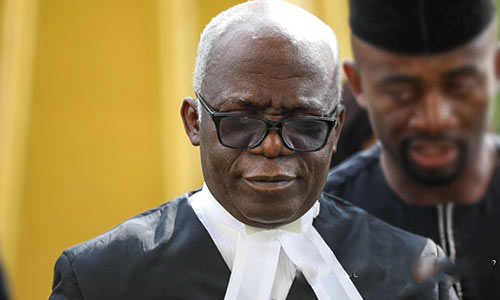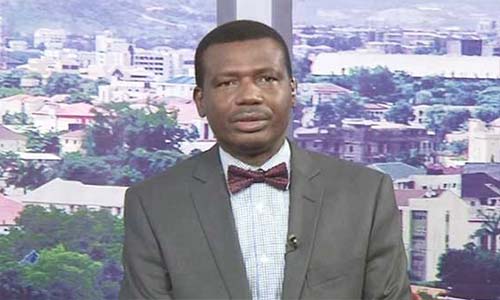Falana: Courts are Usurping INEC’s Powers, Electorate’s Mandate

Human rights activist and lawyer, Mr. Femi Falana, SAN, says Nigerian courts have abandoned their primary responsibility of ensuring compliance with the Electoral Act and other relevant legislations pertaining to general elections. Falana said the courts were now usurping the powers of the Independent National Electoral Commission (INEC). He said the courts had also taken over the mandate of the electorate.
The accusation came as INEC resolved to extend the on-going voters registration exercise indefinitely, till all those wishing to register had done so.
The commission also said the nominations and submission of personal documents of governorship and Houses of Assembly candidates had been slated to start today, July 1, and was expected to end by July 15.
Falana’s views were contained in a paper titled, “The Role of the Courts in the Electoral Process and the Time Bomb of Section 84(12) of the Electoral Act 2022,” delivered yesterday at the Law Week, Nigerian Bar Association (NBA), Ondo Branch. He urged the courts to “stop imposing politicians on Nigerians,” stressing, “The involvement of the courts in the electoral process has not been favourable to the country’s democracy.
“This involvement has been forced by the neglect of its duties by the INEC, the arbitrariness and impunity of some of the members of the executive, and the corrupt activities of political parties.
“In order to respect the democratic wishes of the electorate, there has to be a new electoral jurisprudence. Since the people are the greatest defenders of democracy, INEC must be made to ensure the votes of the electorate count.
“The courts have abandoned their primary role of ensuring compliance with the Electoral Act and the relevant legislations of the constitution pertaining to general election. Apart from usurping the powers of INEC in organising and supervising elections, the courts have taken over the mandate of the electorate.
“The courts have been involved in the appointment of party officers and endorsement of candidates sponsored by political parties to contest elections. Even the meetings of the organs and national conventions of political parties are fixed by the courts. Cases arising from the management of political parties are filed in the high court of the Federal Capital Territory or at the federal high court, outside the venue of the dispute.
“The winners of primaries and general elections are no longer determined by the electorate but by the election petition tribunals and courts. The increasing involvement of the judiciary in the internal affairs of political parties and elections has exposed the judiciary to ridicule.
“In the instance of the APC leadership crisis in 2019, contradictory orders were obtained from the various factions from the Federal Capital Territory high court, Federal High Court, Kano Judicial Division, High Court, Sokoto.
“At some point, members of the public were wondering why high courts continued to hear matters in respect of a case that was already pending before the Court of Appeal. The phenomenon of conflicting court orders calls for an urgent review on the part of the Nigerian Bar Association and the National Judicial Council.
“It is pertinent to point out that conflicting orders are not limited to the high courts alone, as some of the judgements of the appellate courts have put INEC officials in total confusion.
“The most dangerous aspect of the intervention of the courts in the electoral process is the judicial election of governors and other representatives. Aside the resort to technicalities to uphold rigged elections, the Supreme Court has on different occasions installed governors, who were not elected by the people.”



